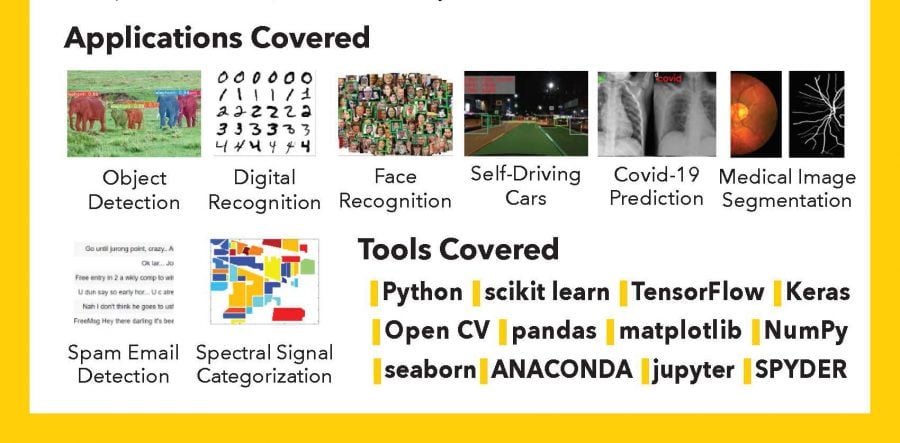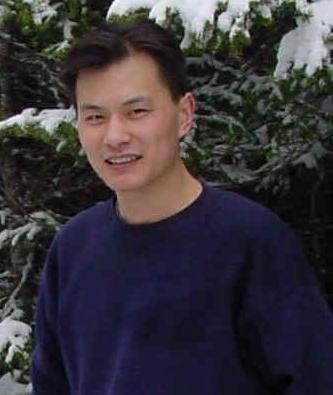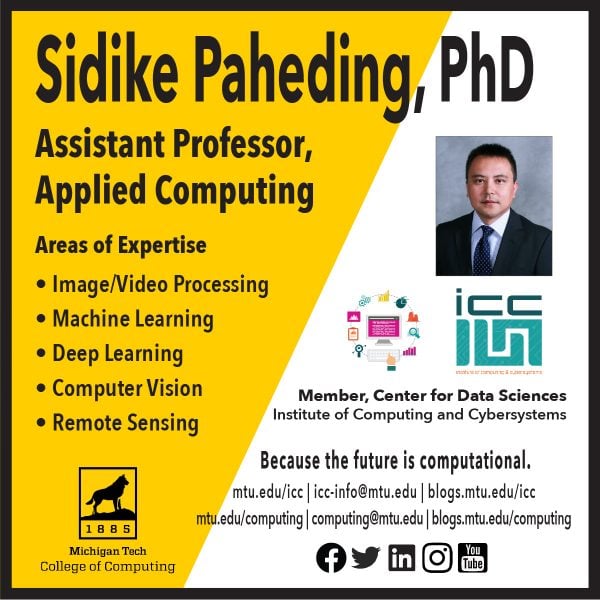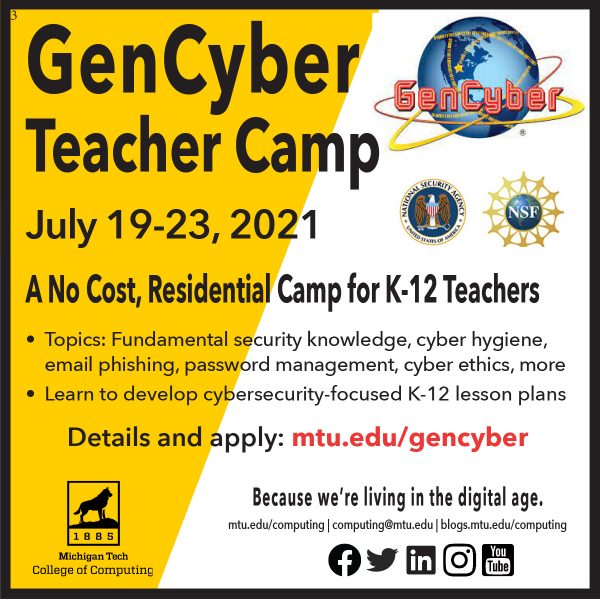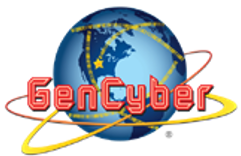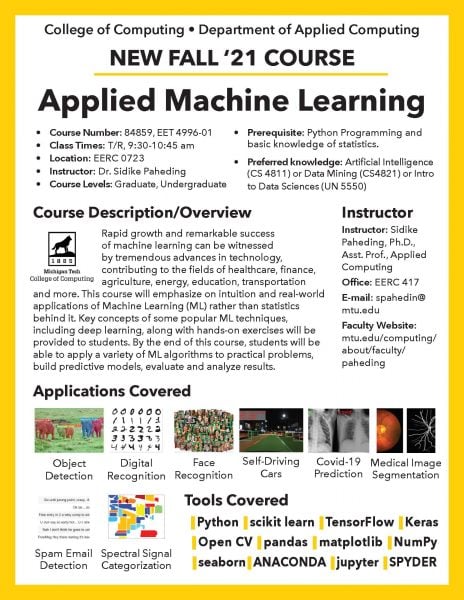
Summary
- Course Number: 84859, EET 4996-01
- Class Times: T/R, 9:30-10:45 am
- Location: EERC 0723
- Instructor: Dr. Sidike Paheding
- Course Levels: Graduate, Undergraduate
- Prerequisite: Python Programming and basic knowledge of statistics.
- Preferred knowledge: Artificial Intelligence (CS 4811) or Data Mining (CS4821) or Intro to Data Sciences (UN 5550)
Course Description/Overview
Rapid growth and remarkable success of machine learning can be witnessed by tremendous advances in technology, contributing to the fields of healthcare, finance, agriculture, energy, education, transportation and more. This course will emphasize on intuition and real-world applications of Machine Learning (ML) rather than statistics behind it. Key concepts of some popular ML techniques, including deep learning, along with hands-on exercises will be provided to students. By the end of this course, students will be able to apply a variety of ML algorithms to practical
Applications Covered
- Object Detection
- Digital Recognition
- Face Recognition
- Self-Driving Cars
- Medical Image Segmentation
- Covid-19 Prediction
- Spam Email Detection
- Spectral Signal Categorization
Tools Covered
- Python
- scikit learn
- TensorFlow
- Keras
- Open CV
- pandas
- matplotlib
- NumPy
- seaborn
- ANACONDA
- jupyter
- SPYDER
Download the course description flyer:
